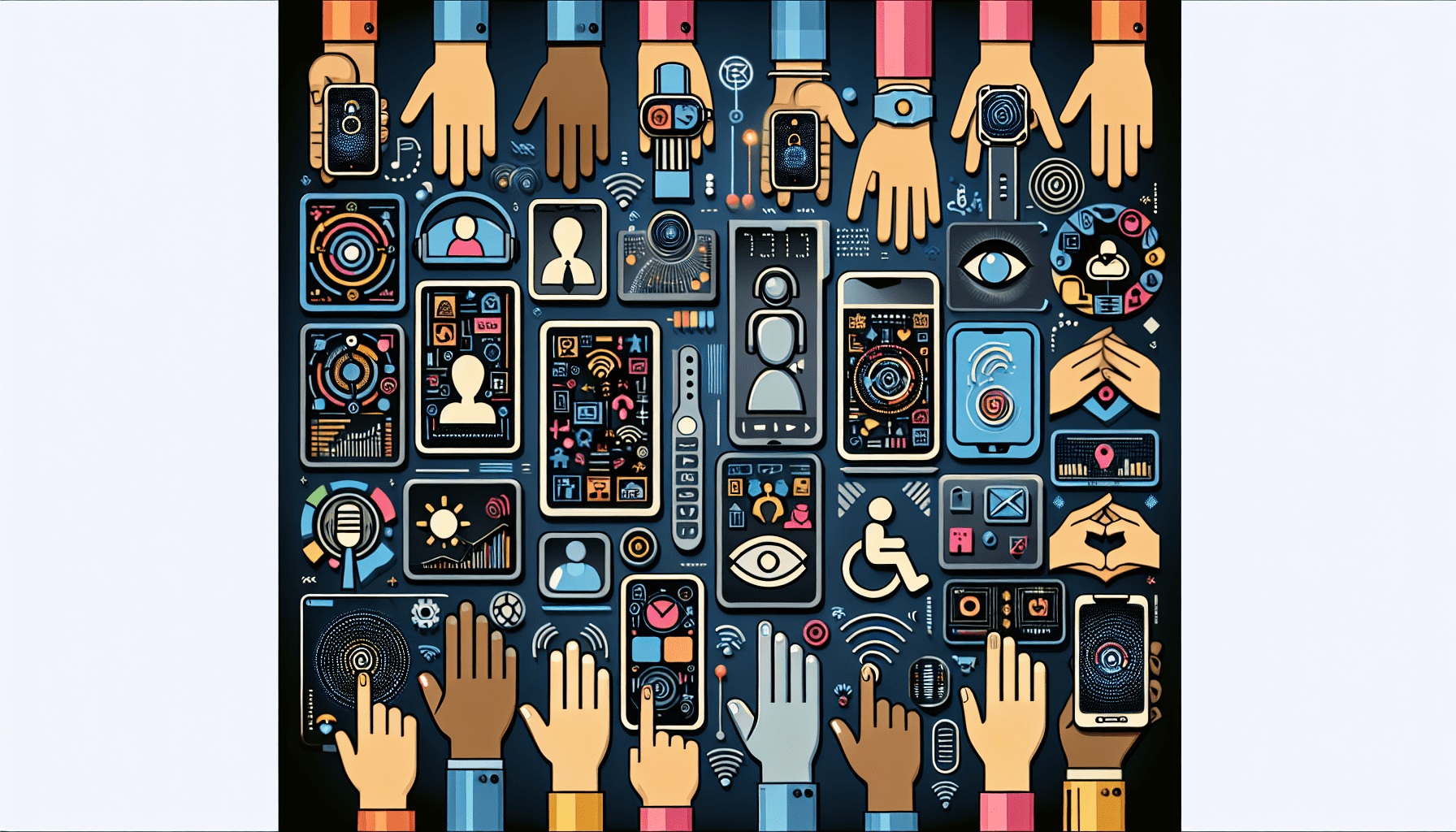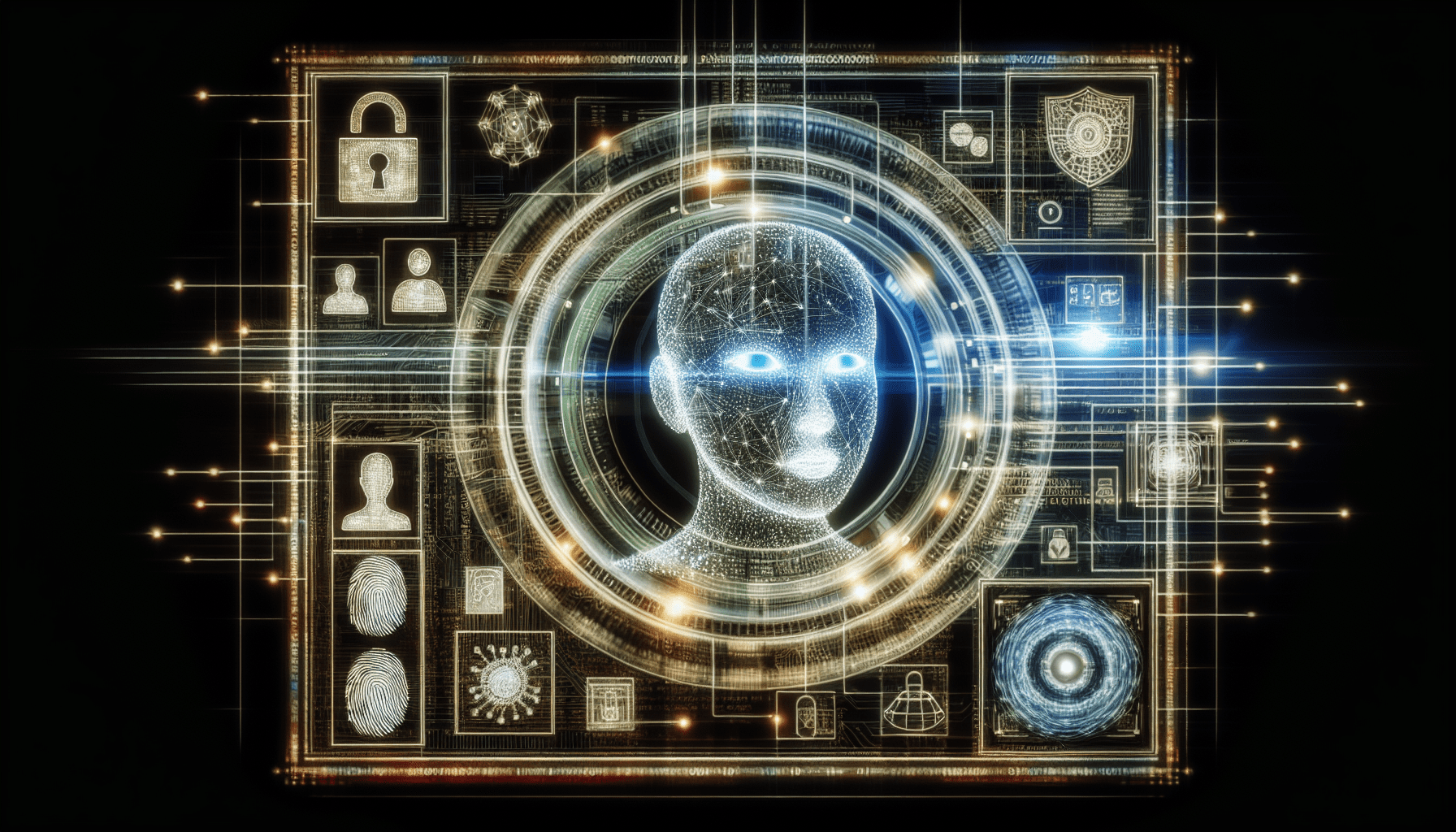Imagine a world where virtual assistants can not only understand your needs, but anticipate them before you even express them. This is the exciting future that awaits us with the advancement of Quantum Machine Learning. In this article, we will explore how this groundbreaking technology is set to revolutionize virtual assistant technologies, and discuss the fascinating possibilities it holds for creating personalized, intuitive and future-proof AI powered assistants. So get ready to embark on a journey into the realm of Quantum Machine Learning for Future-Proof Virtual Assistant Technologies.
What is Quantum Machine Learning?
Definition of Quantum Machine Learning
Quantum Machine Learning is a field that combines principles and techniques from both quantum computing and machine learning to enhance the capabilities of artificial intelligence systems. It involves using quantum algorithms and quantum computers to process and analyze data, enabling more powerful and efficient machine learning models.
How Quantum Machine Learning Differs from Classical Machine Learning
Quantum Machine Learning differs from classical machine learning in several ways. Firstly, while classical machine learning uses classical computers to perform computations, quantum machine learning leverages the principles of quantum mechanics and utilizes quantum computers for processing. This allows for the exploration of complex relationships and patterns in data that may not be feasible with classical approaches.
Another key difference is the use of quantum algorithms in quantum machine learning. These algorithms, such as quantum support vector machines and quantum neural networks, take advantage of quantum properties such as superposition and entanglement to solve optimization problems more efficiently. This can potentially lead to significant speed-ups in solving certain machine learning tasks.
Applications of Quantum Machine Learning
Quantum Machine Learning has a wide range of potential applications across various fields. One notable application is in drug discovery and molecular simulation. Quantum machine learning algorithms can be used to analyze the complex interactions between molecules and predict their behavior, enabling more efficient drug design and development.
Another application is in financial prediction and portfolio optimization. Quantum machine learning algorithms can analyze large amounts of financial data and identify patterns and trends that may not be easily detectable with classical approaches. This can assist in making better investment decisions and managing risks more effectively.
Additionally, quantum machine learning can be applied to natural language processing tasks, such as sentiment analysis and language translation. By leveraging the capabilities of quantum computers, virtual assistants and chatbots can better understand and respond to human language, leading to more accurate and effective communication.
Introduction to Virtual Assistant Technologies
Definition of Virtual Assistant Technologies
Virtual Assistant Technologies refer to the use of artificial intelligence (AI) and natural language processing (NLP) techniques to create intelligent software agents that can assist users in performing various tasks. These virtual assistants can understand and respond to voice commands, answer questions, provide recommendations, and carry out actions on behalf of the user.
Evolution of Virtual Assistant Technologies
Virtual Assistant Technologies have evolved significantly over the years. They started as basic chatbots, capable of answering simple queries and performing predefined tasks. However, advancements in AI and NLP have enabled virtual assistants to become more intelligent and sophisticated.
The introduction of machine learning algorithms has allowed virtual assistants to learn from user interactions and improve their performance over time. They can now understand context, personalize responses, and adapt to user preferences. Natural language understanding and sentiment analysis techniques have also enhanced the ability of virtual assistants to comprehend and respond to human language more accurately.
Current Challenges in Virtual Assistant Technologies
Despite the advancements in virtual assistant technologies, there are still certain challenges that need to be addressed. One challenge is the ability to handle complex and ambiguous queries. Virtual assistants may struggle to accurately interpret user intents when faced with queries containing multiple implicit meanings or contextual nuances.
Another challenge is privacy and security. Virtual assistants often require access to sensitive information, such as personal data or financial details, in order to provide personalized assistance. Ensuring the confidentiality and security of this data is essential to maintain user trust and protect against potential breaches.
Additionally, virtual assistants need to be able to seamlessly integrate with different platforms and systems. Interoperability and compatibility issues can hinder the user experience and limit the functionality of virtual assistants.
The Need for Future-Proof Virtual Assistant Technologies
Limitations of Current Virtual Assistant Technologies
While virtual assistant technologies have made significant progress, they still have certain limitations that may impact their effectiveness. One limitation is the reliance on pre-defined rules and scripts. Virtual assistants heavily rely on predefined responses and actions, which may limit their ability to handle complex or novel scenarios.
Another limitation is the lack of contextual understanding. Virtual assistants may struggle to understand the context of a conversation or remember previous interactions, leading to disjointed and less personalized interactions with users.
Furthermore, virtual assistants often lack the ability to proactively provide relevant information or suggestions. They primarily rely on user-initiated interactions, which may limit their usefulness in certain scenarios.
Factors Driving the Need for Future-Proofing
There are several factors that drive the need for future-proof virtual assistant technologies. Firstly, the increasing complexity and diversity of user needs and expectations require virtual assistants to be more adaptable and capable of handling a wide range of tasks and queries.
Secondly, the rapid advancement of AI and machine learning technologies necessitates continuous improvement and evolution of virtual assistants to keep up with the latest developments. Future-proofing virtual assistants involves leveraging cutting-edge techniques and algorithms to enhance their capabilities.
Another factor is the growing demand for personalized and customized experiences. Users expect virtual assistants to understand their preferences, adapt to their needs, and provide tailored recommendations and solutions. Future-proofing virtual assistant technologies involves integrating advanced machine learning techniques to enable personalized interactions.
Benefits of Future-Proof Virtual Assistant Technologies
Future-proof virtual assistant technologies offer several benefits. Firstly, they can provide enhanced user experiences by understanding natural language, context, and user preferences more effectively. This leads to more accurate responses, personalized recommendations, and seamless interactions.
Secondly, future-proof virtual assistants can increase productivity and efficiency. They can automate repetitive tasks, provide real-time information, and assist users in completing tasks more quickly and accurately.
Additionally, these technologies can support decision-making processes by leveraging advanced data analytics and machine learning algorithms. Virtual assistants can analyze large volumes of data, identify patterns, and provide insights that can assist in making informed decisions.
Furthermore, future-proof virtual assistant technologies can promote innovation and drive competitive advantage. By continuously improving and adapting to changing user needs and technological advancements, organizations can differentiate themselves and stay ahead of the curve.
The Intersection of Quantum Machine Learning and Virtual Assistant Technologies

How Quantum Machine Learning Enhances Virtual Assistant Technologies
By combining the power of quantum computing and machine learning, quantum machine learning can enhance the capabilities of virtual assistant technologies in several ways.
One major enhancement is improved natural language processing. Quantum machine learning algorithms can process and analyze textual data more efficiently, enabling virtual assistants to understand and respond to user queries with greater accuracy and speed.
Additionally, quantum machine learning can enhance recommendation systems. Quantum algorithms can analyze large datasets and extract meaningful patterns and correlations, allowing virtual assistants to provide more personalized and relevant recommendations to users.
Quantum machine learning can also improve decision-making processes. By leveraging quantum computing’s ability to handle complex optimization problems, virtual assistants can assist in making optimal choices and predictions based on large amounts of data.
Quantum Computing’s Potential to Transform Virtual Assistant Technologies
Quantum computing has the potential to fundamentally transform virtual assistant technologies. Quantum computers can perform computations at an exponentially higher speed compared to classical computers, enabling virtual assistants to process and analyze data more quickly and efficiently.
This increased processing power allows virtual assistants to handle more complex tasks and datasets, leading to improved accuracy and performance. Quantum computing can also enable virtual assistants to solve optimization problems that are currently intractable with classical approaches, leading to more efficient decision-making and resource allocation.
Furthermore, the unique properties of quantum systems, such as superposition and entanglement, can enable virtual assistants to explore a wider range of possibilities and generate more creative and innovative solutions.
Advantages of Quantum Machine Learning in Virtual Assistant Technologies
Quantum machine learning offers several advantages in virtual assistant technologies. Firstly, it can significantly enhance the speed and efficiency of virtual assistants. Quantum algorithms can solve certain machine learning tasks much faster than classical algorithms, allowing virtual assistants to provide real-time responses and perform computationally intensive tasks more efficiently.
Secondly, quantum machine learning can improve the accuracy and effectiveness of virtual assistants. Quantum algorithms can handle large amounts of data and extract deeper insights and patterns, leading to more accurate recommendations and predictions.
Additionally, quantum machine learning provides the potential for exponential scalability. As quantum computers scale up in size and power, virtual assistant technologies can benefit from this scalability and handle increasingly complex tasks and datasets.
Furthermore, quantum machine learning can enable virtual assistants to process and analyze encrypted or sensitive data while preserving privacy. Quantum encryption algorithms and secure multiparty computation techniques can ensure the confidentiality and integrity of data, making virtual assistants more trustworthy and secure.
Quantum Machine Learning Algorithms for Virtual Assistant Technologies
Overview of Quantum Machine Learning Algorithms
Quantum machine learning algorithms are specifically designed for quantum computers and leverage the principles of quantum computing to solve machine learning tasks. These algorithms can be divided into various categories, including quantum support vector machines, quantum neural networks, and quantum clustering algorithms.
Quantum Support Vector Machines
Quantum support vector machines (QSVM) are quantum versions of classical support vector machines (SVM). They aim to classify data points into different classes by finding an optimal hyperplane that maximally separates the data. QSVM algorithms leverage quantum computing’s ability to perform parallel quantum computations to accelerate the training process and improve classification accuracy.
Quantum Neural Networks
Quantum neural networks (QNN) are quantum versions of classical neural networks (NN). QNNs consist of quantum nodes, which are quantum systems representing neurons, and quantum gates, which perform quantum computations. These networks can learn complex representations and patterns in data, enabling virtual assistants to recognize and interpret different types of inputs.
Quantum Clustering Algorithms
Quantum clustering algorithms aim to group similar data points together based on their underlying patterns and similarities. These algorithms leverage quantum computing’s ability to explore a large number of possibilities simultaneously, enabling virtual assistants to identify clusters and structure in complex datasets.
Challenges and Limitations of Quantum Machine Learning for Virtual Assistant Technologies
Technical Challenges in Implementing Quantum Machine Learning
Implementing quantum machine learning algorithms in virtual assistant technologies presents several technical challenges. Firstly, quantum algorithms require specialized hardware and software infrastructure. The availability and scalability of quantum computers are still limited, making it challenging to perform quantum computations efficiently for real-world applications.
Secondly, quantum machine learning algorithms require expertise in both quantum computing and machine learning. Developing and optimizing these algorithms requires a deep understanding of quantum mechanics, quantum circuit design, and quantum error correction techniques.
Finally, quantum machine learning algorithms may face challenges in integrating with existing virtual assistant systems. Integrating quantum algorithms with classical AI systems and maintaining compatibility can be complex and may require substantial modifications to the existing infrastructure.
Quantum Hardware Requirements
Quantum machine learning algorithms require specialized hardware to perform quantum computations. Quantum computers, such as qubit-based systems or topological qubit systems, are needed to execute quantum algorithms. However, the development and availability of such hardware are still in the early stages, making it challenging to implement quantum machine learning algorithms at scale.
Furthermore, quantum hardware is highly sensitive to environmental disturbances and noise, which can introduce errors in the computations. Overcoming these hardware limitations and reducing noise is crucial for achieving reliable and accurate results in quantum machine learning for virtual assistant technologies.

Data Quantumization and Noise
Quantum machine learning algorithms can handle quantum data, classical data, or a combination of both. However, converting classical data into quantum data (quantumization) introduces various challenges. The process of quantumization may result in information loss or distortion, which can affect the accuracy and performance of quantum machine learning algorithms.
Additionally, quantum computations are susceptible to noise and errors caused by decoherence and imperfect hardware. These errors can accumulate and propagate throughout the computation, leading to inaccuracies in the results. Developing error mitigation techniques and error-correction codes is crucial to address the noise and error challenges in quantum machine learning for virtual assistant technologies.
Ethical and Privacy Concerns
As with any advanced technology, quantum machine learning for virtual assistant technologies raises ethical and privacy concerns. Virtual assistants often handle sensitive user information, and protecting the privacy and security of this data is of utmost importance.
Employing quantum machine learning algorithms may introduce new vulnerabilities and risks in terms of data security and privacy. Ensuring appropriate encryption techniques and secure multiparty computation protocols are in place is crucial to prevent unauthorized access or misuse of user data.
Additionally, the ethical implications of using advanced AI technologies, such as virtual assistants powered by quantum machine learning, need to be carefully considered. Transparency, fairness, and accountability should be prioritized to prevent potential biases or discrimination in the decision-making processes of virtual assistants.
Real-World Applications of Quantum Machine Learning in Virtual Assistant Technologies
Enhanced Natural Language Processing
Quantum machine learning can greatly improve the natural language processing capabilities of virtual assistants. By leveraging the power of quantum computing, virtual assistants can understand and interpret natural language more accurately and efficiently. This allows for more natural and conversational interactions with users, enhancing the overall user experience.
Furthermore, quantum machine learning algorithms can assist in sentiment analysis, entity recognition, and language translation tasks. Virtual assistants can analyze and interpret the underlying meaning and sentiment in user queries, leading to more personalized and contextually relevant responses.
Smarter Decision Making and Personalization
Quantum machine learning algorithms can support virtual assistants in making smarter and more informed decisions. By analyzing large volumes of data and identifying meaningful patterns and correlations, virtual assistants can assist in decision-making processes, such as recommending products or services, optimizing resource allocation, and predicting user preferences.
Additionally, quantum machine learning algorithms enable virtual assistants to personalize their interactions with users. By learning from past interactions and understanding user preferences, virtual assistants can provide tailored recommendations, suggestions, and content that are more aligned with the individual user’s needs and preferences.
Improved Speech Recognition and Synthesis
Quantum machine learning algorithms have the potential to significantly improve speech recognition and synthesis capabilities in virtual assistants. Quantum algorithms can process and analyze audio data more efficiently, leading to more accurate speech recognition and transcription.
This enhanced speech recognition enables virtual assistants to better understand spoken commands and queries, making interactions more seamless and intuitive for users. Similarly, quantum machine learning algorithms can improve speech synthesis, allowing virtual assistants to produce more natural and human-like speech responses.
Optimized User Experience
By leveraging quantum machine learning, virtual assistants can provide an optimized user experience that is tailored to the individual user’s needs, preferences, and context. Quantum algorithms can analyze user behavior, feedback, and historical data to predict user intent and provide personalized recommendations and actions.
Furthermore, quantum machine learning algorithms can enable virtual assistants to anticipate user needs and provide proactive assistance. For example, based on a user’s calendar and location data, a virtual assistant can proactively suggest relevant information or actions, such as reminding the user about an upcoming meeting or suggesting nearby restaurants when traveling to a new city.
Future Trends and Developments in Quantum Machine Learning for Virtual Assistant Technologies
Integration of Quantum Machine Learning with Quantum Computing
One of the key future trends in quantum machine learning for virtual assistant technologies is the integration with quantum computing. As quantum hardware continues to advance and become more accessible, integrating quantum machine learning algorithms with quantum computers will become more feasible and practical.
This integration will allow virtual assistants to leverage the full power and potential of quantum computing, leading to significant improvements in speed, accuracy, and scalability. Quantum machine learning algorithms can be designed specifically for quantum hardware architectures, enabling more efficient and effective computations.
Advancements in Quantum Hardware
Advancements in quantum hardware will play a crucial role in the future of quantum machine learning for virtual assistant technologies. Researchers and engineers are working on developing more robust and reliable quantum computers with increased qubit counts, longer coherence times, and lower error rates.
These advancements will enable the execution of more complex quantum machine learning algorithms and open up new possibilities for virtual assistants. Smaller, more compact quantum hardware that can be integrated into portable devices may also become a reality, allowing virtual assistants to be more ubiquitous and accessible.
Exploration of Hybrid Quantum-Classical Approaches
Another future trend is the exploration of hybrid quantum-classical approaches in quantum machine learning for virtual assistant technologies. In a hybrid approach, classical machine learning algorithms and quantum algorithms are combined to leverage the strengths of both paradigms.
This hybrid approach can overcome some of the limitations of current quantum hardware by offloading computationally intensive tasks to quantum computers while utilizing classical algorithms for pre-processing, post-processing, and overall system control.
Increased Adoption in Industry
As quantum technologies continue to mature and become more accessible, there will be an increased adoption of quantum machine learning for virtual assistant technologies in various industries. Organizations will leverage quantum machine learning to enhance their virtual assistants, enabling more powerful, intelligent, and personalized user experiences.
Industries such as healthcare, finance, retail, and customer service are particularly likely to benefit from the integration of quantum machine learning into virtual assistant technologies. These industries often deal with large amounts of data, complex decision-making processes, and personalized interactions, all of which can be enhanced by quantum machine learning algorithms.
Challenges and Opportunities in the Adoption of Future-Proof Virtual Assistant Technologies
Overcoming Technical Barriers
The adoption of future-proof virtual assistant technologies faces several technical barriers that need to be overcome. These include the development of robust and scalable quantum hardware, the optimization and refinement of quantum machine learning algorithms, and the integration and compatibility with existing virtual assistant systems.
Collaboration between researchers, engineers, and industry leaders will be crucial in addressing these technical barriers and advancing the capabilities of future-proof virtual assistant technologies.
Addressing Ethical and Privacy Concerns
As future-proof virtual assistant technologies become more powerful and capable, addressing ethical and privacy concerns becomes increasingly important. Clear guidelines and regulations need to be established to ensure the responsible and ethical use of virtual assistants powered by quantum machine learning.
Organizations should prioritize data privacy and security, implement transparent decision-making processes, and ensure fairness and inclusivity in the design and deployment of virtual assistants. Maintaining user trust and confidence is essential for the widespread adoption of future-proof virtual assistant technologies.
Training and Education for Future-Proof Technologies
The adoption of future-proof virtual assistant technologies requires a skilled workforce with knowledge and expertise in quantum computing, machine learning, and virtual assistant technologies. Training and education programs need to be developed to equip individuals with the necessary skills to work with these advanced technologies.
Additionally, ongoing research and collaboration between academia and industry are essential to continuously advance the field and keep up with the latest trends and developments in future-proof virtual assistant technologies.
Integration with Existing Systems
Integrating future-proof virtual assistant technologies with existing systems and platforms can present challenges in terms of interoperability, scalability, and compatibility. Efforts should be made to ensure seamless integration with other AI systems, enterprise software, and IoT devices.
Collaboration between different stakeholders, such as virtual assistant providers, IT departments, and system integrators, is crucial to ensure smooth integration and minimize disruption to existing workflows and processes.
Conclusion
In conclusion, quantum machine learning offers exciting opportunities to future-proof virtual assistant technologies. By combining the power of quantum computing and machine learning, virtual assistants can be enhanced in terms of natural language processing, decision-making, personalization, and user experience.
However, there are also challenges that need to be addressed, such as technical barriers, privacy concerns, and ethical considerations. Overcoming these challenges and leveraging the potential of quantum machine learning can lead to transformative advancements in virtual assistant technologies.
The adoption of future-proof virtual assistant technologies requires collaboration, training, and education to develop a skilled workforce and to ensure smooth integration with existing systems. By embracing the power of quantum machine learning, virtual assistants can become smarter, more efficient, and more personalized, revolutionizing the way we interact with AI-powered assistants in the future.
It is imperative for industry and research communities to embrace this paradigm shift and invest in the development and implementation of future-proof virtual assistant technologies powered by quantum machine learning. By doing so, we can unlock the full potential of virtual assistants and shape a future where intelligent AI-powered assistants seamlessly assist us in various aspects of our lives.


